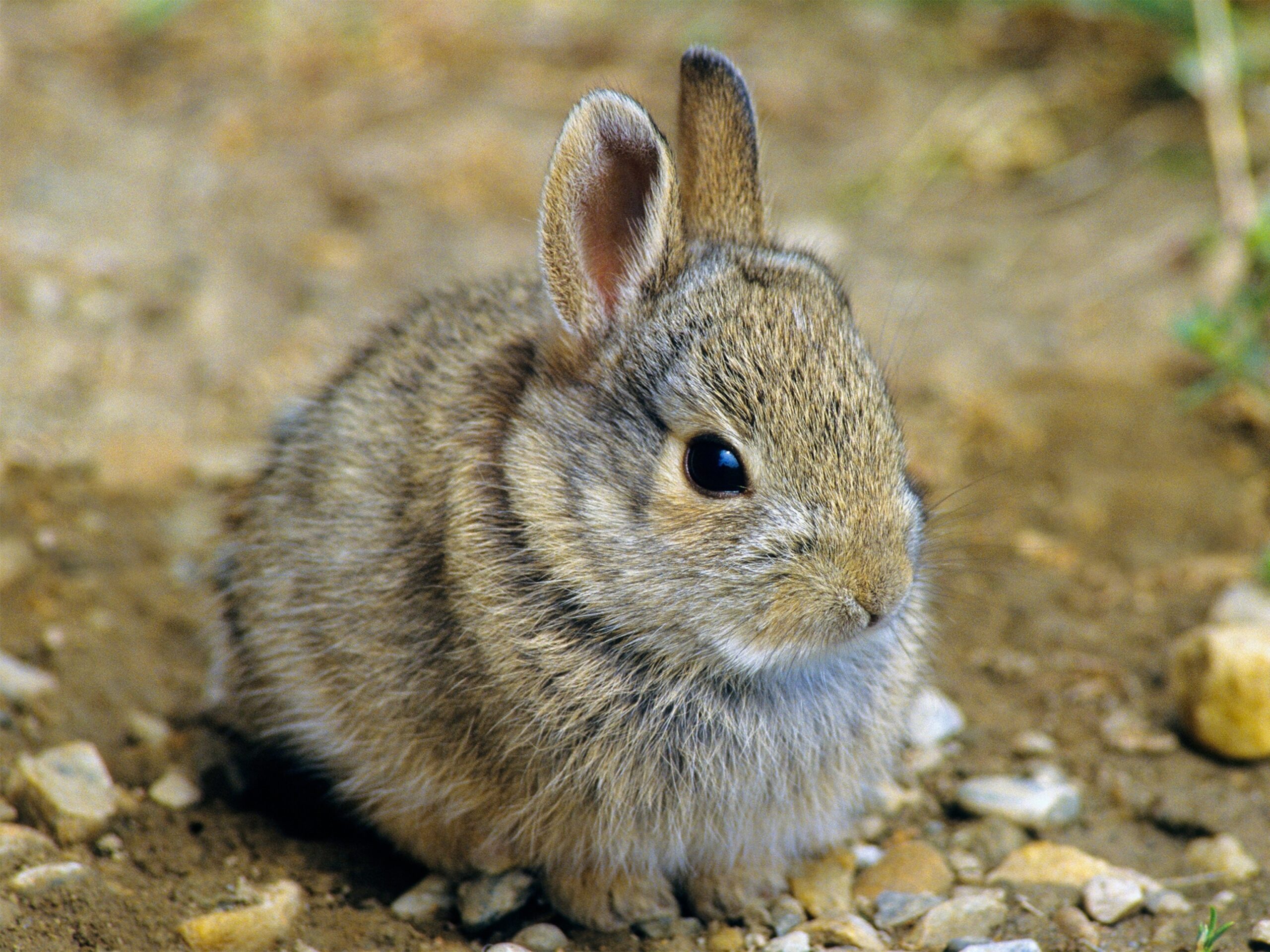Who doesn’t love baby bunnys? Adorable, fluffy, and full of personality, baby bunnys are one of the most beloved pets around. If you are thinking of bringing a baby bunny into your home, there is a lot to learn about these delightful creatures. This article will provide you with everything you need to know about rabbits, from their diet and habitat needs to fun facts about their behavior. With this helpful information, you can give your baby bunnys the best care possible.
What is a Baby Rabbit?
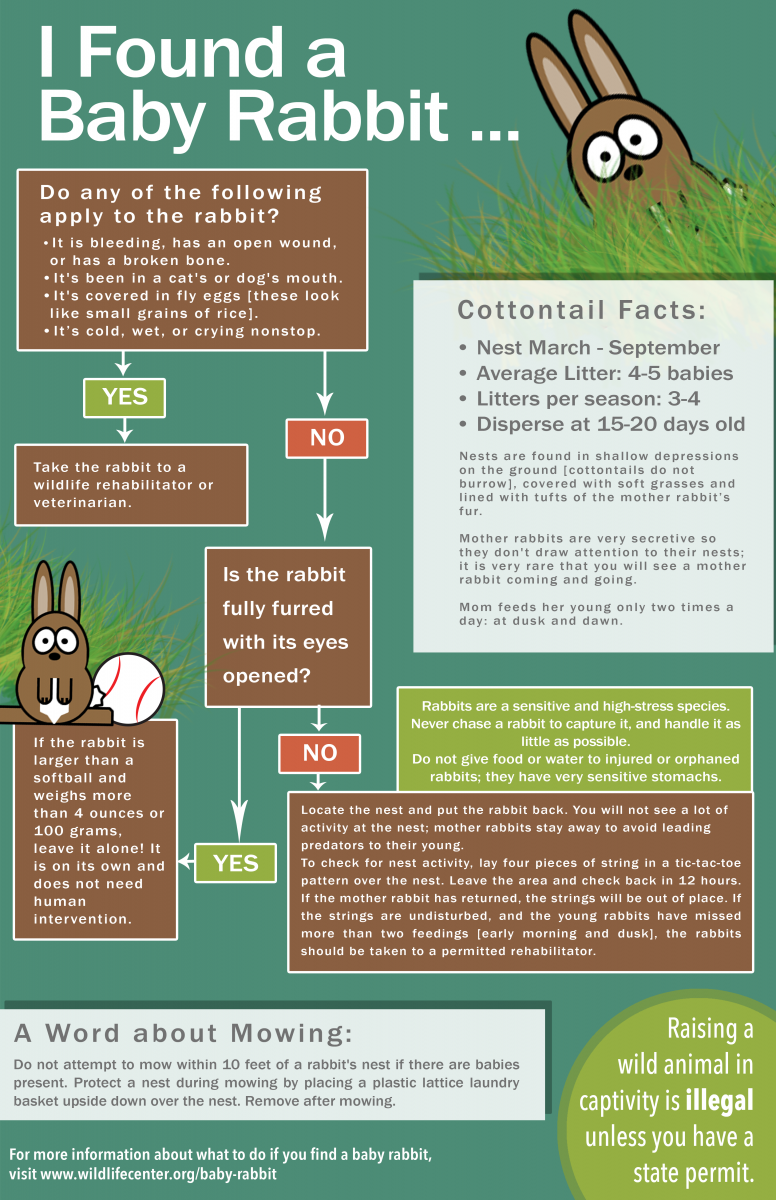
A baby rabbit, also known as a kitten, is a young rabbit that is between the ages of one and three months old. Baby bunnys are born blind and hairless, but within a few weeks they will start to develop fur and their eyes will open. At around 10 weeks of age, baby bunnys will be weaned and can start to explore their environment.
Once they reach the age of four months, the baby bunnys will be ready to leave their mother and start to live independently. Baby rabbits are very playful and curious and make great pets, as they bond with their owners quickly and enjoy human interaction.
Thanks to their small size and friendly nature, baby bunnys are a popular pet choice. They require regular grooming and exercise, and a diet of fresh vegetables and hay. Baby rabbits are also very social and should be kept in pairs or groups.
Overall, baby bunnys are an adorable and rewarding pet choice. With the right care and attention, they can make a wonderful companion.
How Big are Newborn Bunnies?
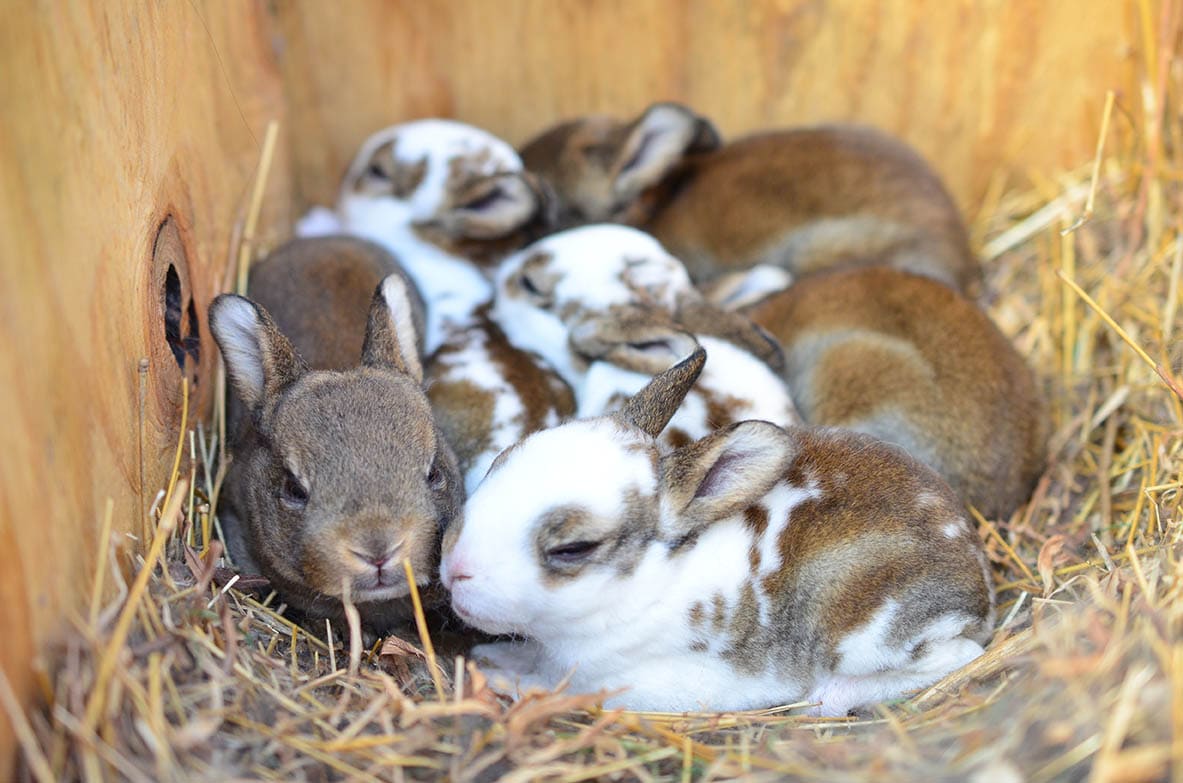
Baby bunnies are small and adorable, and when they are born, they are incredibly tiny! Newborn bunnies are typically no larger than a man’s fist, weighing in at only a few ounces. Their eyes are closed, and they rely completely on their mothers to keep them warm and fed.
At birth, rabbits are blind, deaf, and completely helpless. They are born with their fur and whiskers and their bodies are covered with a soft, downy fur. Their bodies are not very developed yet and they cannot regulate their body temperatures.
As they get older, baby bunnies start to grow quickly. By the time they are two weeks old, they will have doubled in size and be able to open their eyes and stand on their own. By six weeks old, they will have reached about half of their adult size.
Baby bunnies are incredibly sweet and cuddly, and are so small that they can fit in the palm of your hand. It is important to handle baby bunnies with care, as they can easily be injured if handled too roughly.
Baby Bunny Appearance and Behaviour
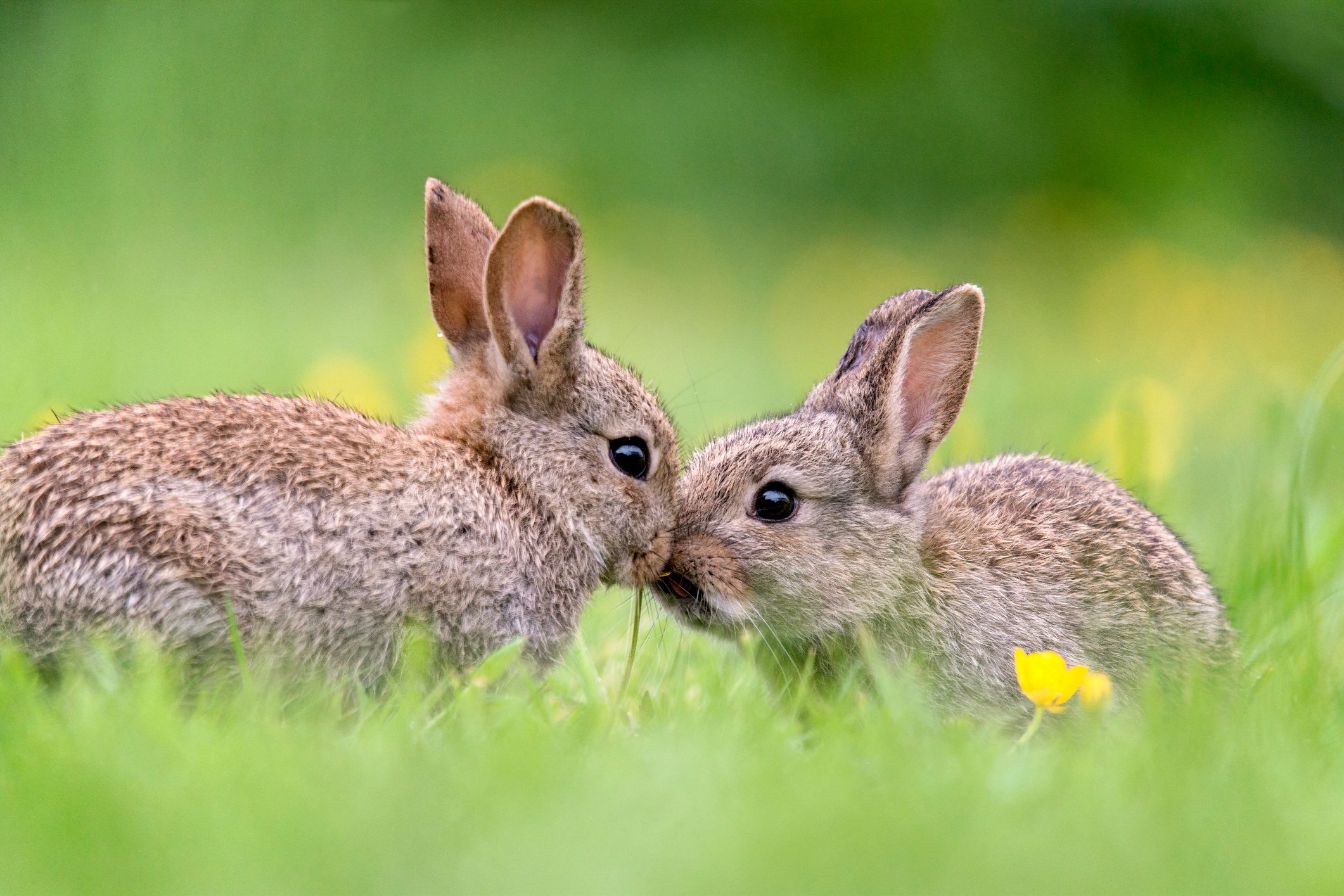
Baby bunnies are adorable and full of life. They have fluffy fur, big ears, and a twitchy nose. Here are some interesting facts about baby bunny appearance and behaviour:
- Baby bunnies have short, soft fur that changes colour as they grow older.
- Their ears are large and can rotate 180 degrees to help them detect predators.
- Baby bunnies have excellent vision, and their eyesight is better than that of an adult rabbit.
- Baby bunnies are born without fur, but within a week of birth they are covered in fur.
- Baby bunnies are very active and playful. They love to explore and are often seen running and hopping around.
- Baby bunnies are curious and will often investigate new objects or people.
- Baby bunnies are social animals and enjoy the company of other rabbits.
- Baby bunnies are very vulnerable to predators and need to be kept safe.
Baby bunnies are truly fascinating creatures and make wonderful pets. If you are considering getting a pet rabbit, make sure to do your research and make sure you are prepared to give your baby bunny the best care possible.
Feeding Baby Bunnies
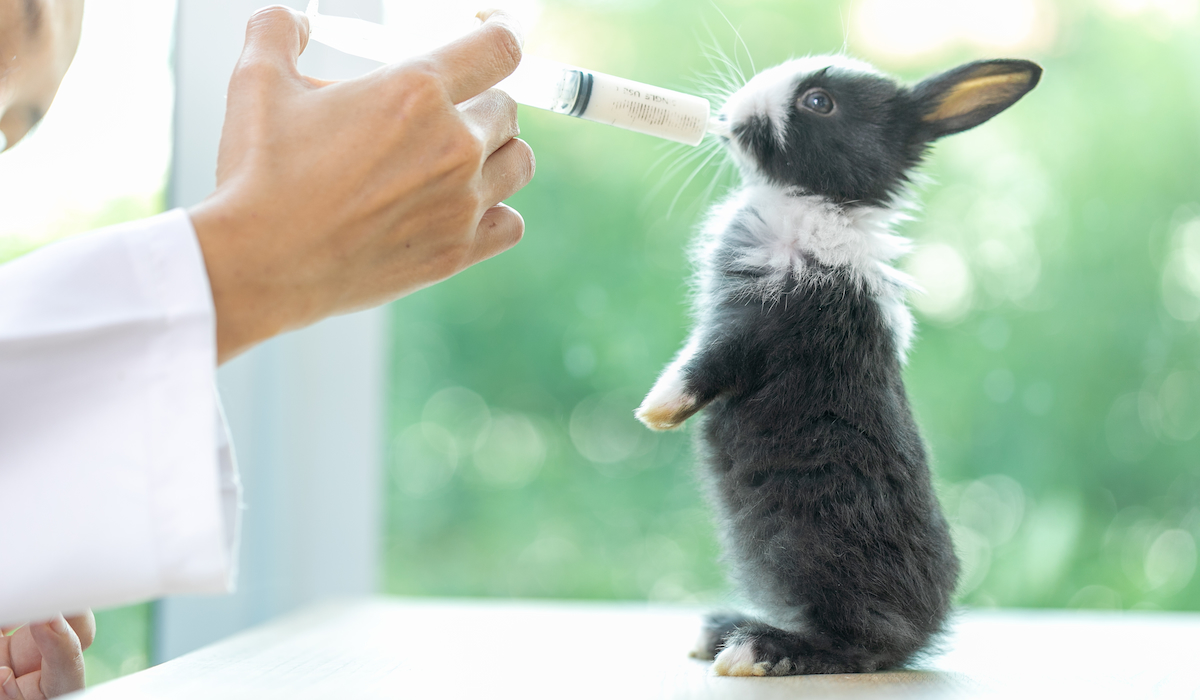
Baby rabbits require a diet rich in protein and fiber, but with limited amounts of carbohydrates and fat. They should be fed on a combination of hay, fresh vegetables, and specially formulated rabbit food. It is important to provide a constant source of hay, such as grass, meadow, or oat hay, as this will help to keep their digestive system healthy.
A handful of fresh vegetables, such as lettuce, carrot, and cucumber, can be given once per day. Do not feed cabbage, onion, garlic, spinach, or rhubarb, as these can cause digestive issues in rabbits. A small amount of specially formulated rabbit food can also be given, such as pellets or muesli. This should be given in limited amounts, as overfeeding can lead to obesity.
Always provide plenty of fresh, clean water for your baby rabbit. It is important to clean and refill the water bowl at least once per day.
When introducing new foods, do so gradually. This will help to prevent digestive upsets, as baby rabbits can be sensitive to dietary changes. Offer new foods in small amounts and monitor your rabbit’s response. If your baby rabbit is showing signs of distress, such as diarrhea or bloating, stop offering the new food.
It is also important to monitor your baby rabbit’s weight, as this can help to identify any potential health issues early. Healthy baby rabbits should gain weight regularly and have a good coat of fur.
Caring for Baby Bunnies
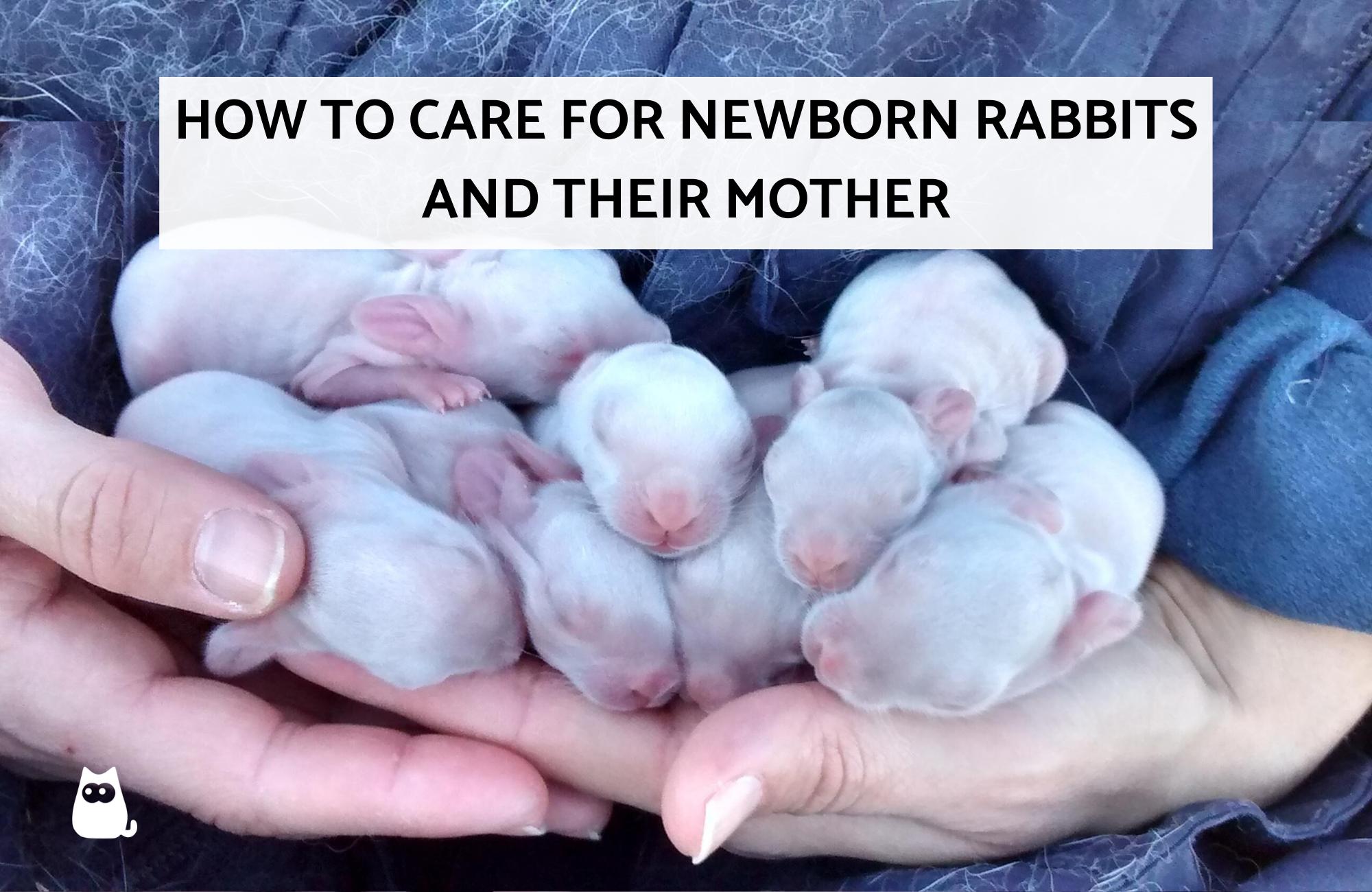
Caring for baby bunnies is different than caring for adult rabbits. The needs of young rabbits are much more intense and there are various special considerations that must be taken into account.
Feeding
Baby bunnies need to be fed more frequently than adult rabbits, usually 4-6 times each day. They should be given a high-quality, age-appropriate pellet food, supplemented with hay and fresh vegetables.
Bedding
Young rabbits should have soft, comfortable bedding that is changed frequently. Aspen shavings or recycled newspaper are both good choices.
Exercise
It is important for baby bunnies to have plenty of time to exercise, play and explore. A rabbit playpen or cardboard box filled with toys is a great way to keep your young rabbit active and entertained.
Socialization
Socialization is an important part of raising young rabbits. It is important to handle your baby bunny often, in order to build a bond of trust and familiarity.
Health Care
It is important to take your young rabbit to the vet for regular health checks. Adult rabbits can go for checkups once a year, but young rabbits should be taken to the vet more frequently, as they are more vulnerable to illness and injury.
Spaying and Neutering
Spaying and neutering young rabbits is important for their long-term health and wellbeing. If your rabbit is not spayed or neutered, it is important to do so as soon as possible.
Introducing to Other Animals
Young rabbits should be kept separate from other animals until they are old enough to be safely introduced. Introductions should be done slowly and carefully, with plenty of supervision.
Overall, caring for baby bunnies requires a lot of time and patience. With the right care and attention, young rabbits can grow into healthy, happy adults.
When Can Baby Bunnies Leave Their Mothers?
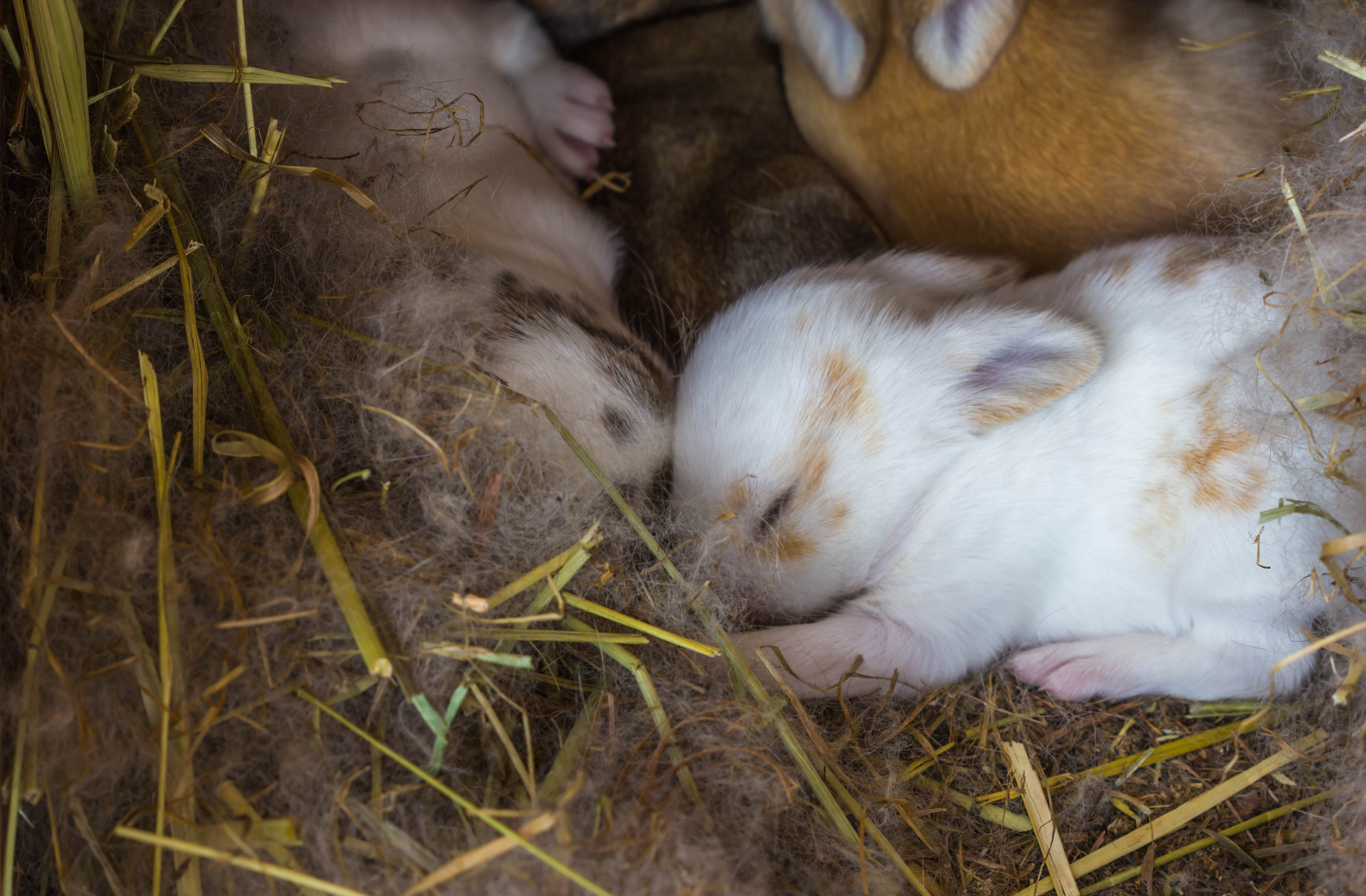
Baby rabbits, or kits, are born blind and helpless, and rely on their mother for survival for the first few weeks of life. The mother rabbit, or doe, provides milk and warmth and teaches the kits how to feed and groom themselves. It is crucial for the kits to stay with their mother until they are 8-10 weeks old, when they are weaned and able to live independently.
When the kits reach 8-10 weeks old, they should be separated from the mother, as it is not healthy for the doe to nurse multiple litters at the same time. Before separating the kits, the owner must ensure they are old enough, healthy, and have been properly socialized.
Kits that are separated too early may have difficulty eating and grooming themselves, and may become malnourished or develop health complications. Additionally, they may grow up to be fearful and skittish as they have not learned proper socialization skills from their mother.
What is a Baby Rabbit?
A baby rabbit is a newborn rabbit, or kit, that is born blind and helpless and requires its mother’s care for the first 8-10 weeks of life. During this time, the mother doe provides milk and warmth and teaches the kits how to feed and groom themselves. At 8-10 weeks old, the kits are able to live independently and should be separated from the mother.
Where to Find Pet Baby Bunnies
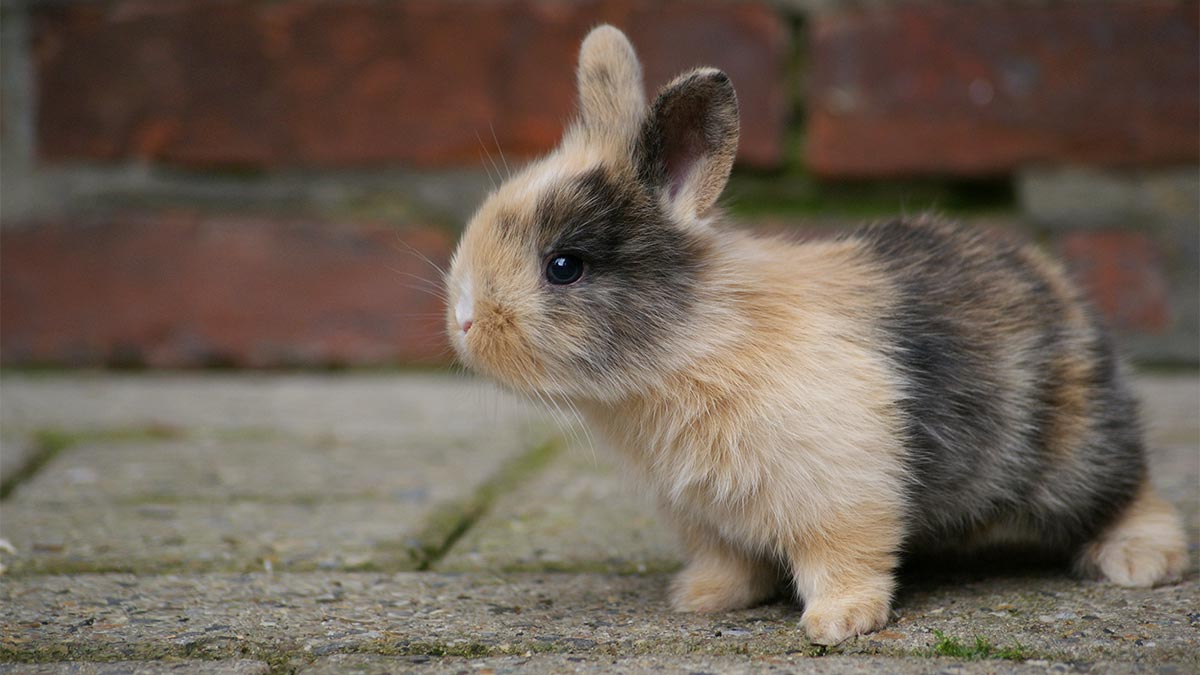
- Local pet stores or animal shelters are great places to start searching for pet baby bunnies.
- Rabbit rescues and animal sanctuaries often have baby bunnies for adoption.
- Check classified ads, newspaper listings, and online sources for potential pet bunnies.
- Try asking family, friends, and colleagues if they know of any bunnies up for adoption.
- Be wary of breeders and pet stores that offer baby bunnies for sale.
How Big Are Newborn Bunnies? Baby bunnies are usually born blind, furless, and helpless. They weigh about 2-4 ounces and are about 3 inches long. They will begin to open their eyes at about 10-14 days old and will start to eat solid food at about 4 weeks old.
Health Issues in Baby Bunnies
Baby bunnies are incredibly cute and lovable. But, like any pet, they are prone to certain health problems. Here are some of the most common health issues in baby bunnies:
- Ear Mites – These tiny parasites can cause irritation, itching and inflammation in a baby bunny’s ears. Treatment includes cleaning the ears and applying a topical ointment or medication.
- Upper Respiratory Infections – These are infections of the nasal passages and sinuses. Symptoms include sneezing, coughing and discharge from the eyes and nose. Treatment usually involves antibiotics.
- Parasites – Baby bunnies can be infected with a variety of parasites, including fleas, ticks, mites and worms. Treatment usually involves deworming and/or topical medications.
- Diarrhea – Diarrhea is a common problem in baby bunnies. It can be caused by stress, poor diet or a bacterial or viral infection. Treatment usually involves dietary changes and/or antibiotics.
- Mouth and Teeth Problems – Baby bunnies can develop dental problems due to poor diet or a vitamin deficiency. Treatment usually involves dietary changes, supplements and/or antibiotics.
- Heatstroke – Heatstroke is a serious condition that can be fatal. Symptoms include panting, lethargy and rapid breathing. Treatment involves cooling the bunny down and providing supportive care.
It’s important to keep an eye out for any signs of illness in your baby bunny. If you notice any unusual symptoms, contact your veterinarian immediately. With proper care and attention, your baby bunny can stay happy and healthy.
Frequently Asked Questions
How Often Should I Feed My Baby Bunnies?
Baby bunnies should be fed every 2-3 hours, with each meal being no more than a teaspoon of food appropriate for their age. Feeding should start at 5 days old, and continue until the bunnies are weaned (usually around 8-10 weeks old). After weaning, the bunnies can be moved onto a diet of hay, fresh vegetables, and a small amount of pellets.
What type of cage is best for a baby bunny?
When it comes to housing a baby bunny, the most important factor to consider is the size of the cage. Baby bunnies need plenty of room to move around and explore. The cage should be no smaller than 2’ x 2’, and preferably larger to allow the bunny to jump and stretch out.
The ideal cage should also include the following:
- Cage should be made of chew-resistant material, such as metal or hard plastic.
- Multiple levels and shelves to allow the bunny to explore.
- A litter box for waste.
- A water bottle and food bowl that can be secured to the cage.
- A hayrack to store hay.
- Lots of toys and chew items to keep the bunny entertained.
It is also important to note that baby bunnies should not be kept in cages with wire floors, as it can cause sore hocks. The cage should also be placed away from direct sunlight and drafts. Finally, the cage should be cleaned regularly to prevent the build-up of bacteria and to keep the bunny healthy.
Are There Any Special Dietary Needs for Baby Rabbits?
Baby rabbits require a diet high in fiber and low in fat and protein. They need fresh hay and vegetables, such as dark leafy greens, carrots, and apples. High-fiber pellets are also essential for their health. Avoid giving them foods high in sugar, such as fruits, as they can cause gastrointestinal issues. Fresh water should be available at all times.
How Can I Tell If My Baby Bunny is Healthy?
Healthy baby bunnies will be alert, active, and have a good appetite. Look for a glossy coat, clean ears, and bright eyes. Check for any discharge from the eyes or nose. Healthy bunnies should move around easily and with coordination. They should not be limping or favoring any particular limb. Check for healthy teeth, and make sure the baby bunny is eating and drinking normally. Finally, check for signs of parasites like fleas, mites, and lice.
What type of environment is best for a baby rabbit?
Secure and Clean: A baby rabbit needs a secure and clean home environment. The cage or hutch should be large and roomy, and preferably made of wood. Inside the hutch, provide bedding material like hay, sawdust, or paper-based litter. The litter should be changed regularly.
Temperature: Rabbits need a cool, comfortable environment. Ideal temperature is between 15°C to 25°C. Make sure that the cage is not kept in direct sunlight as this can cause overheating.
Humidity: The optimal humidity for a baby rabbit is between 30%-60%. Make sure that the cage is not too humid as this can lead to bacteria and mould growth, and can cause respiratory illnesses.
Ventilation: The cage or hutch should have adequate ventilation. Make sure the hutch has a wire mesh that allows for air to circulate, and windows to allow natural light.
Noise: Baby rabbits are easily startled by loud noises, so keep the environment as quiet as possible.
Play Area: Provide a play area outside the hutch for the baby rabbit to explore. Toys and obstacles can be added to the play area, to stimulate the baby rabbit’s curiosity.
Conclusion
Rabbits make wonderful pets, but require a dedicated level of care and attention. They are social animals that need plenty of time and space to explore, play, and interact with their owners. To ensure a long and healthy life, provide your rabbit with a large, secure enclosure and plenty of fresh vegetables and hay. With proper care and nutrition, your rabbit should live a happy and healthy life.
